Text
Okay so the word "lycanthrope" is Greek in origin, from λύκος (lýkos, meaning "wolf") and άνθρωπος (ánthrōpos, meaning "human"). It has since been applied as a generic term for, you know, people who can turn into some type of animal, what would be more accurately classed as a therianthrope but who cares. All animal shapeshifters of a type are wolf-people.
Werewolf can be analyzed as were+wolf, the were- prefix having originally been just a West Germanic word meaning "man." So it's a man-wolf. These days were- is a productive prefix that can be affixed to almost any type of animal to make a new animal type of shapeshifter. Consider a werebear.
The French word for werewolf is loup-garou. Some kind of wolf-garou. To simplify, garou comes from Frankish *werawulf, a cognate of English "werewolf" because Frankish was also a West Germanic language, and the word underwent a bunch of changes (including that lovely w->g change Old French loves so much) to eventually become the Middle French garou. So in French a werewolf is a wolf-man-wolf. Garou has since been turned into a productive suffix to make new animal types of guy. In French translations of D&D, a werebear is an ours-garou. A bear-garou.
All of which is to say: in French D&D a bear-man-wolf is a type of wolf-person.
467 notes
·
View notes
Text
Hey btw, if you're doing worldbuilding on something, and you're scared of writing ~unrealistic~ things into it out of fear that it'll sound lazy and ripped-out-of-your-ass, but you also don't want to do all the back-breaking research on coming up with depressingly boring, but practical and ~realistic~ solutions, have a rule:
Just give the thing two layers of explanation. One to explain the specific problem, and another one explaining the explanation. Have an example:
Plot hole 1: If the vampires can't stand daylight, why couldn't they just move around underground?
Solution 1: They can't go underground, the sewer system of the city is full of giant alligators who would eat them.
Well, that's a very quick and simple explanation, which sure opens up additional questions.
Plot hole 2: How and why the fuck are there alligators in the sewers? How do they survive, what do they eat down there when there's no vampires?
Solution 2: The nuns of the Underground Monastery feed and take care of them as a part of their sacred duties.
It takes exactly two layers to create an illusion that every question has an answer - that it's just turtles all the way down. And if you're lucky, you might even find that the second question's answer loops right back into the first one, filling up the plot hole entirely:
Plot hole 3: Who the fuck are the sewer nuns and what's their point and purpose?
Solution 3: The sewer nuns live underground in order to feed the alligators, in order to make sure that the vampires don't try to move around via the sewer system.
When you're just making things up, you don't need to have an answer for everything - just two layers is enough to create the illusion of infinite depth. Answer the question that looms behind the answer of the first question, and a normal reader won't bother to dig around for a 3rd question.
115K notes
·
View notes
Text
Saw this on Twitter and I obligatory need to share it

79K notes
·
View notes
Text








Gav’s Tavern Hi, I hope you like this. It is different from what I usually do. Also it was a lot of work.
31K notes
·
View notes
Text
Concept: Tolkienesque high fantasy setting where hobbits/halfings are the implausibly long-lived ones. Think about it: stable, slow-growing communities in spite of everybody having a huge family, high young adult populations but few visible children, museums stuffed with forgotten magical artifacts – it all adds up if the little fuckers live for thousands of years!
980 notes
·
View notes
Text
Well I would give a medieval peasant some spaghetti.
73K notes
·
View notes
Text
Writing high fantasy is harder for me than it used to be because I'll write "The door swung open" and I'll imagine some tumblr user with three different grad degrees in medieval history dunking on me with a 2,000-word post about how door hinges weren't invented until 1956 and before that they'd just smash them open with axes and rebuild them each time.
23K notes
·
View notes
Text
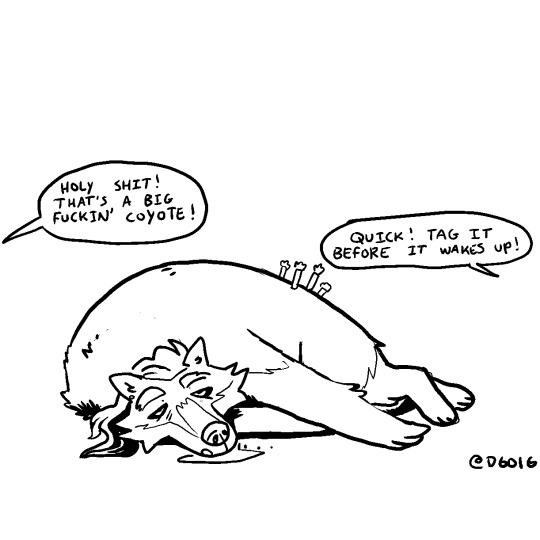

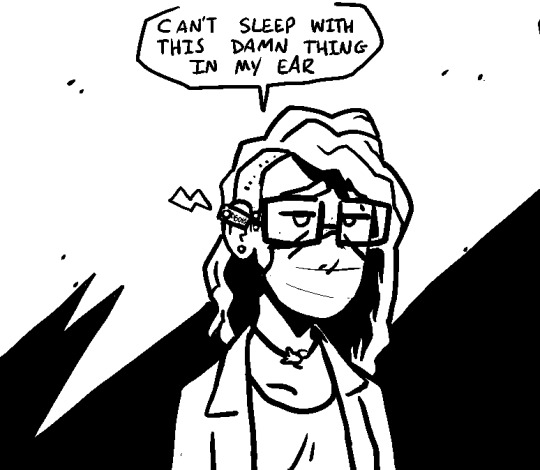
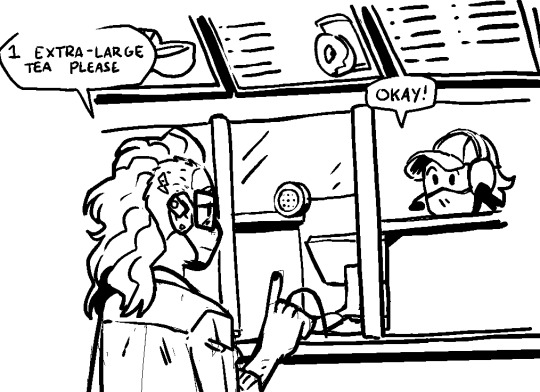
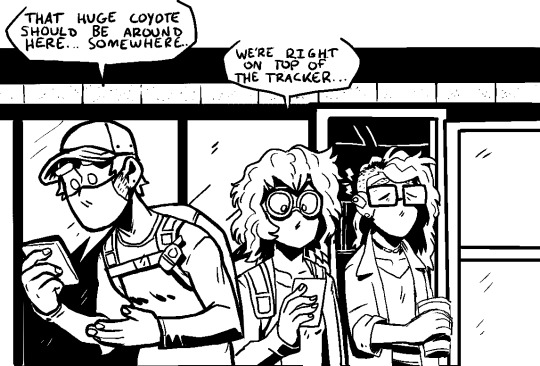

been drawing some werewolf stuff over twitter, here, have them all together as one big sequence. the bit where she's complaining about it keeping her awake is about 2 weeks later. for the record: the talk of coyotes is because there are no wolves here on my island. they are extinct and we imported coyotes to take their place (it did not work well)
78K notes
·
View notes
Text
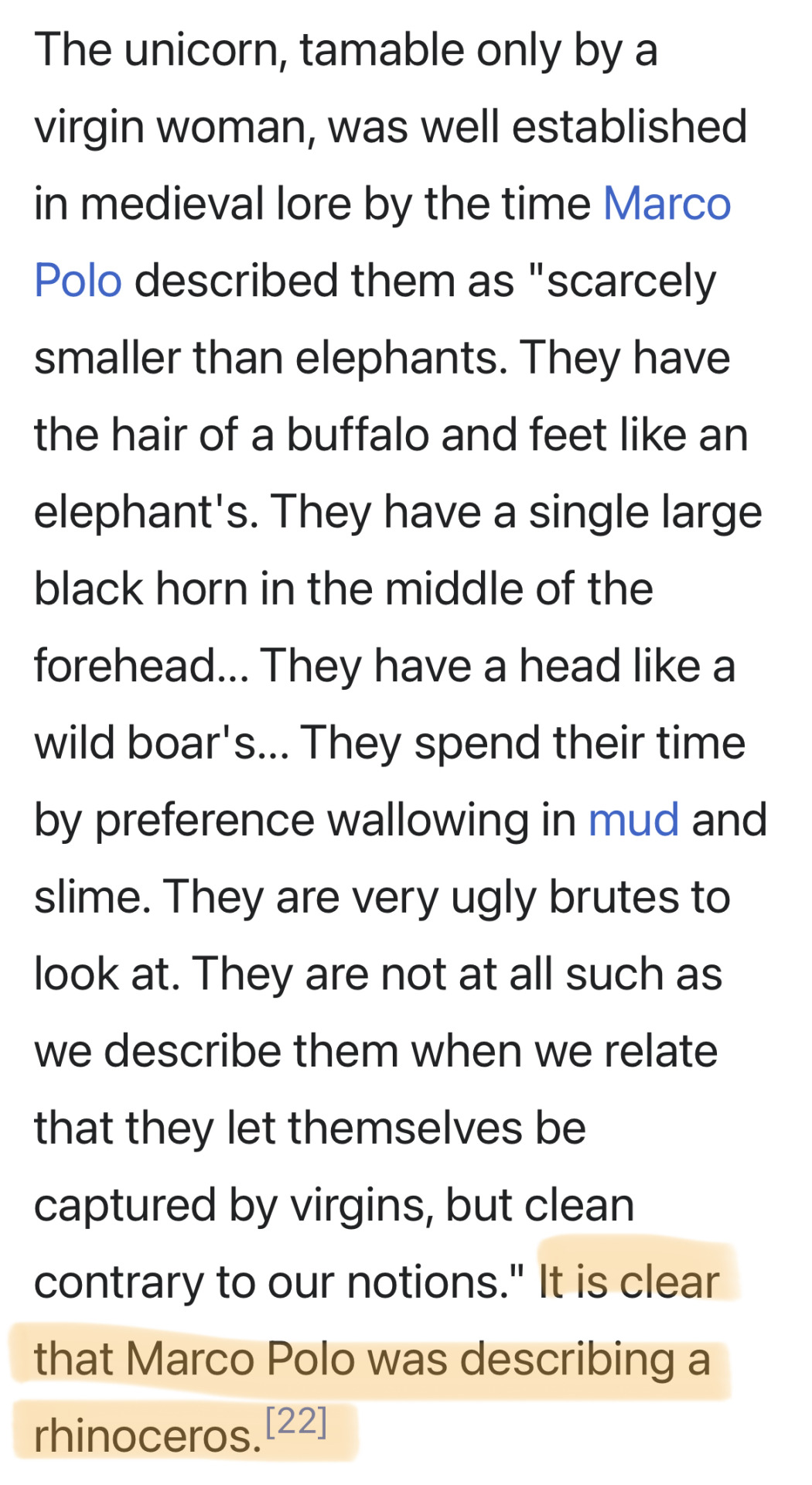
I was reading up on unicorns today and wikipedia is not supposed to be this funny!!
12K notes
·
View notes
Text
Indvisable tabletop RPG premise #137: solo journaling game where.. okay, you know that serialised boys' adventure schlock from the 1930s and 1940s where the writers needed the otherwise intensely homosocial male leads to be seen hanging out with girls in order to prove that they're not gay, but they didn't want to include more than one female character, so they'd have just the one girl and sort of imply-without-ever-directly-stating that she's dating all of them at once? Solo journaling game where you take on the role of that girl.
1K notes
·
View notes
Text
The thing that gets me about Aabria's dming style (or well. One of the things) is she seems so very nice. "Here, have inspiration. Of course you can add your magic die. You rolled a 6 on perception, okay well I'll still give you a little thing at least."
She's so nice and so friendly, she will yes and almost anything the players want to do.
And this is all very fun and nonthreatening and easy until suddenly she says yes to something a player does that they absolutely should not do. Until she says "you did this so now this happens" and sets the DC for not dying at 30. Oh but she's still nice! You can use your magic die! You can keep the magic motes from last time since it was a cliffhanger so you can use those too! It's totally possible!
Aabria will let you do anything. And you don't realise that that's not as "nice" as you think it is until it's too late
4K notes
·
View notes
Text
Tip: A friend is someone you can talk to about Fantasy Worldbuilding
4K notes
·
View notes
Text
The Monster Manual but it's blatantly written by the monsters
68K notes
·
View notes
Text
Most of the popular indie RPG frameworks are a lot more narrowly focused in terms of the player-facing incentives they furnish than folks tend to think they are, so at least half the time I'll be reading a new Apocalypse Engine or Forged in the Dark or Belonging Outside Belonging or LUMEN or OSR or what-have-you game and spend the whole time thinking "okay, has this person completely misunderstood the kind of play the framework they're using encourages, or have I completely misunderstood the kind of play they're aiming for?"
776 notes
·
View notes
Text
Tumblr 200 Word RPGs
This is a sideblog for the informal 200-word RPG jams organised by @prokopetz each November.
Next Event
2024-11-01 through 2024-11-30; a link to the relevant thread will be added here on the first day of the event.
Past Events
2023 – Tumblr thread | Offsite archive 2022 – Tumblr thread | Offsite archive
Submission Guidelines
This is an informal game jam; entries are not curated or judged, no eligibility rules are enforced, no winners are chosen, and the organising parties explicitly refuse to define the terms "word" or "RPG". If you wish to participate, you can follow these steps:
Step 1: If you're unfamiliar with 200-word RPGs, read a bunch of previous entries year's entries (linked above), or browse the 200 Word RPG Challenge archives at https://200wordrpg.github.io/ to get in the proper headspace. (Note: this blog is not affiliated with the 200 Word RPG Challenge; its archives are provided for reference only.)
Step 2: Write your own 200-word RPG. If you're not sure of your word count, you can use the counter at https://200wordrpg.github.io/wordcount to check. If you disagree with how this tool defines "word", feel free to use a different counting method – adherence to the word limit is on the honour system anyway.
Step 3: Reblog the current event's main post (linked above when an event is active) and append your 200-word RPG in the reblog. Please do not submit your entry as a reblog to this post.
Step 4 (optional): If you wish to provide any author's notes on your entry, please place them under a "Read More" break to make it clear which part of the post is the game and which part is commentary.
Step 5 (optional): Please indicate in your post whether you're okay with having your 200-word RPG archived off-site for posterity – if you don't say anything one way or the other, we'll assume the answer is "no". Please state this separately from any more general discussion of sharing or remixing permissions; don't make us guess!
308 notes
·
View notes
Note
don't answer that last ask I sent you actually. a) because I've since realized you rightfully don't give a shit about wizards of the coast, and would be justified in deleting the info I wanted from your brain as soon as you learned it, b) because I realized you aren't Google, and c) because I Googled it and found out myself.
on a related note, did you know wizards copyrighted the term "d20 system??" wtf. that was the last place I expected to have problems. I thought it'd be, like, "armor class" or "difficulty class" or something else similarly oppressive and cruel to copyright that would force me to change my whole rules document, and mess with my player's ability to remember which mechanics have had their name changed.
Somehow copyrighting the term "d20 system" feels even wronger than that.
Wizards of the Coast is the outfit that popularised the idea of categorising game systems according to the shape of the dice you roll in the first place. There are a few prior examples of games with similar naming conventions, including West End Games' D6 System – which is where WotC probably got the idea – but the idea of "dX systems", where X is the shape of the dice you roll, as coherent categories of games is very much a post-d20 System phenomenon.
That is, it's not that WotC trademarked (note: not "copyrighted") an existing piece of in-use terminology when they trademarked the term "d20 System"; it's that the idea of lumping all game systems which make use of twenty-sided dice together under the category of "d20 systems" was popularised by WotC's trademark.
(Indeed, if one were feeling conspiratorial, one might observe that the idea that all systems which roll the same-shaped dice are basically interchangeable with one another is a notion whose popularisation has proven very convenient for WotC's post-3E marketing strategy!)
616 notes
·
View notes